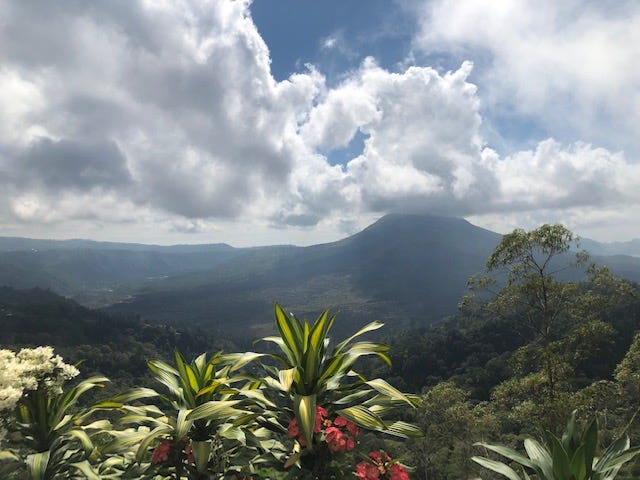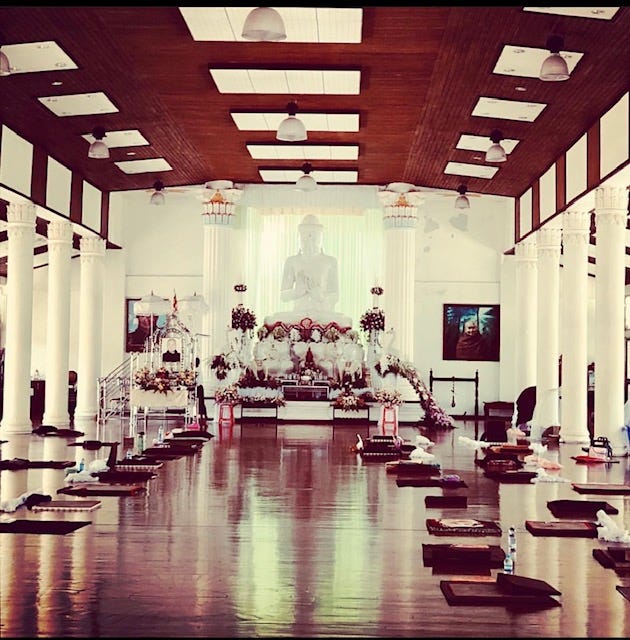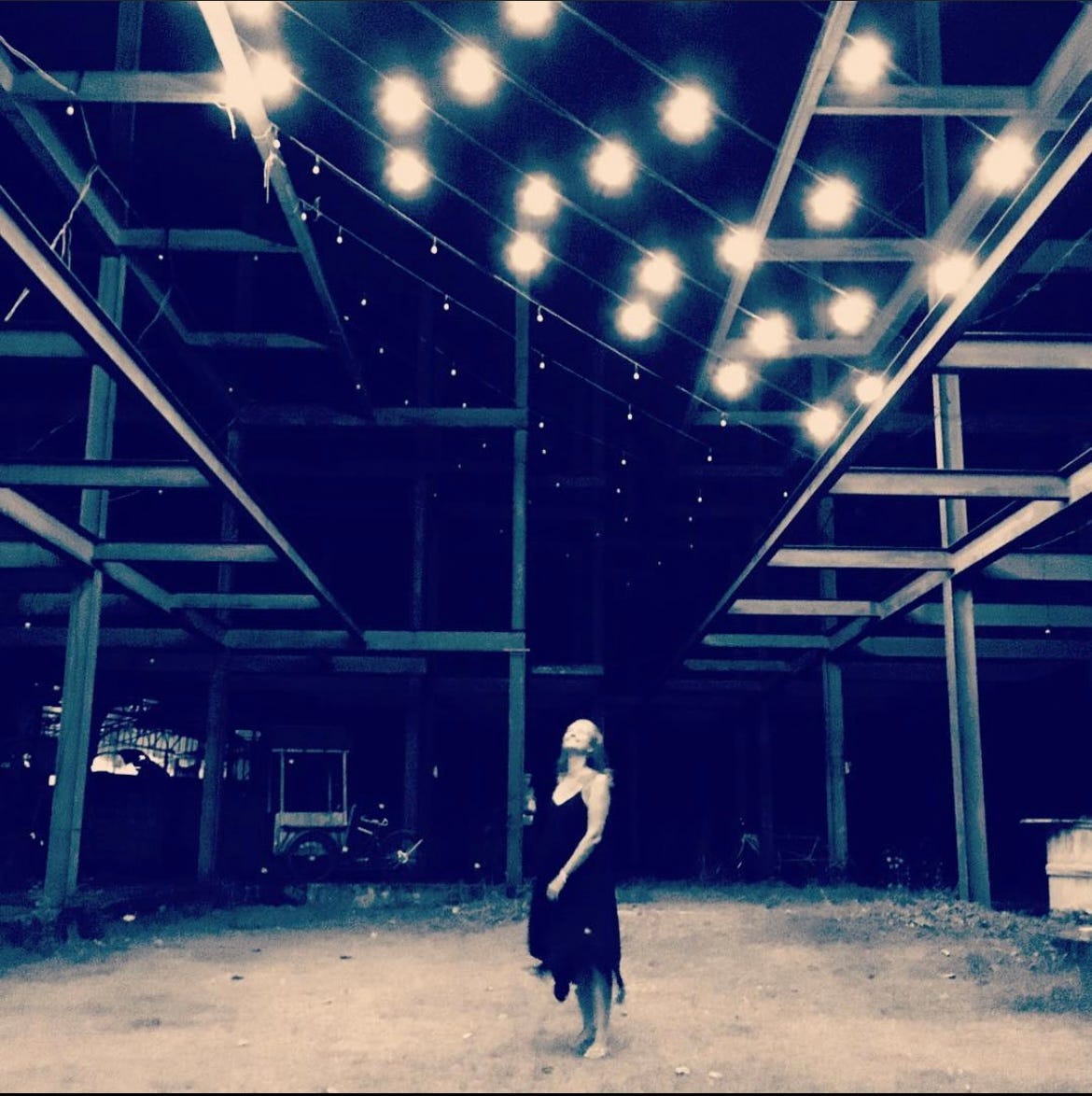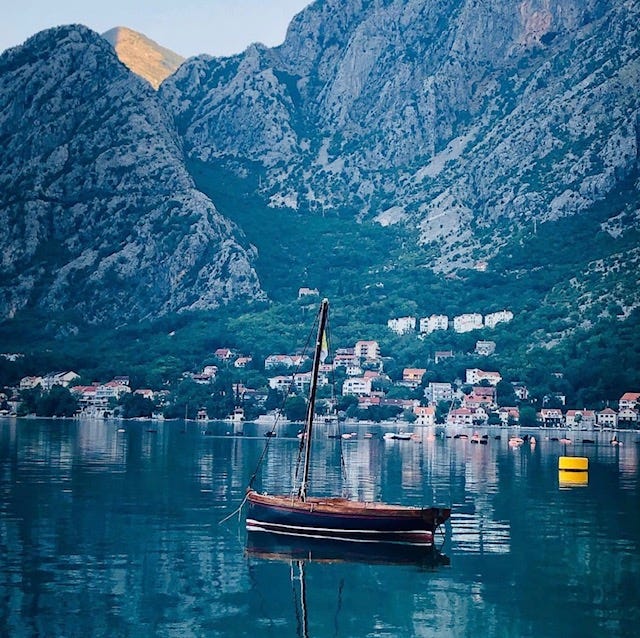“Solitude, like a long love, deepens with time… There is no place more intimate than the spirit alone.” ~ May Sarton
I have been feeling lonely these days; waking up with the heartbreak of isolation and loneliness. It’s a kind of loneliness where you are surrounded by many people daily and yet you feel alone, and longing. Somehow I can’t help but feel alone. That is the kind of loneliness I have experienced most of my life. As I mentioned in one of the previous offerings, I used to be constantly surrounded by other children and, later, adults, and yet most of the time felt lonely. To me, being lonely has to do with being isolated and on your own, but also with not being seen, understood, not being part of, being different than others in your surrounding, or simply feeling like your aloneness is hurting. The common thread for most addicts seems to be a sense of not fitting in, a sense of being so different from others and experiencing life differently, a sense of being a “misfit”. I believe loneliness can stem from this. In my case it does.
There are many moments in life where I choose and enjoy my aloneness, my solitude, very much; I learnt to do that in my recovery. For decades I would not allow myself to be alone; I would look for something and someone to save me, a way out. As soon as I would get that nauseated feeling of sickness that we actually call loneliness, I would try to find a companion who could save me from my desperation. Suddenly, after I got sober, I started spending more and more time alone, and with things that genuinely interest me. I started spending less time with others, even with my family and those who I consider to be close friends. Somehow, when I stepped on this journey of self study, recovery, and spirituality, I became less interested in night life, big groups, parties, daily worldly topics, small talks, and many other things that most people out there seem to enjoy (or at least don’t have difficulty being part of). I would often choose to stay home and skip an event, go home early, spend time alone, and also I felt a need to live alone and to decide when I want to be with people and when not. Most times this would feel like a joyful solitude, and sometimes more like a painful isolation. It’s been an interesting journey, this past decade.
I read somewhere recently that psychologists have found that “fertile solitude” is “the basic unit of a full and contented life”. I believe this to be true. Solitude is much needed in order for one to get to know the self, to create, to heal, to recover, and also to learn how to fulfill one’s own needs and not depend on others to do so. Solitude is not entirely the state of being alone but the art of becoming fully ourselves.
“True solitude is a way of being that needs to be cultivated. You cannot switch it on or off at will. Solitude is an art. Mental training is needed to refine and stabilize it. When you practice solitude, you dedicate yourself to the care of the soul.” ~ Stephen Batchelor

Something strange and astonishing begins to happen when one spends longer intervals of time in solitude - a kind of growth in one’s deepest self-knowledge, a relearning of how to simply be oneself. I spent a lot of time in retreats since I got sober, aside from also just being on my own for periods of time every day. Some were group, and others solitude retreats. Most were silent. I remember my first three-day solitude retreat at a friend’s house, it was so difficult and painful to sit with myself, my mind was full of (mostly critical and judgmental) chatter, I wanted to jump out of my own (itching) skin and scream. There and then it became so obvious to me how dependent (and, often, addicted) we are to the outside stimuli, sounds, other people, noise, smell, food, music, and everything that our sense organs want to grab onto and process. Staying inside the house, alone, reflecting and going deeper inwards, instead, was the best choice I could have made (and not the easiest one, trust me). After that first solitude retreat, many others followed, and I would be lying if I’d say that others did not stir up things and that they were always a smooth sailing.
Often, it is not enough that we are just alone in our houses (or retreat cabins, for that matter), because everyone is present there with us (even though physically they are not). Through our own inner critics and judgments - our friends are there, our parents, children, dogs, those who know us as well as those who don’t. It takes time going inward so that you can really be alone and with your work or practice. I remember being in a group silent retreat and witnessing so many feelings of irritability and judgment come up around the people who were sitting with me, but I did not know any of them closely. Some of them I have never even met. But in my mind, I already was dating some of them, we probably got married, had babies, and then we broke up or I ended up killing them. One of the teachers I know once told a story of how, at one of his retreats, he was jealous at someone because of how great their socks were. It is fascinating how human nature and the nature of our mind is.
“There are those among you who seek the talkative through fear of being alone.
The silence of aloneness reveals to their eyes their naked selves and they would escape.
And there are those who talk, and without knowledge or forethought reveal a truth which they themselves do not understand.
And there are those who have the truth within them, but they tell it not in words.
In the bosom of such as these the spirit dwells in rhythmic silence.”~ Kahlil Gibran, The Prophet
Poet and philosopher Wendell Berry’s life-tested belief is that “true solitude is found in the wild places, where one is without human obligation”. This is something I have experienced in retreats too. It is the easiest way to create an environment in which one can be truly alone - doing a solitude retreat in a remote area, like a mountain or desert. Additionally, taking the time away from all responsibilities and daily obligations, from social pressures and restrictions, is what is much needed. There, and only there, one can find themselves. It takes practice and time. And it is not necessarily a glorious experience.
After years of retreats, as well as living in remote areas and a few third world countries, I have learnt that I clearly long for living in quieter, simpler and more in-contact-with-nature environments. This kind of lifestyle brings me closer to myself, and it also keeps me modest in my needs and wants, and more humble towards everyone else. Naturally, it also provides for my solitude. By removing myself from other people and into solitude, I separate myself from others. That way, I can see more clearly how different I am from others, what kind of person I am, and what is my life about. In the end, this process actually pointed me to the whole humanity, how alike and interdependent we all are, and also how important it is to find our own true and independent voice; our own path.
But there is a challenge in that neutral state of aloneness; there is a thin psycho-emotional line between solitude and loneliness that can be cutting deep into the soul. How much of my solitude is a choice in which I deliberately want to get to know myself better, and how much of it is the circumstances in which I am simply alone, and it hurts. And also, even though I am choosing my solitude, it doesn’t mean that it will always be comfortable, joyful, and comforting; quite the opposite - it is often uncertain, painful, and heartbreaking. It often feels like the pain of the whole world is in my little heart, and I can’t breathe. And then … there is the moment in which I can choose to do something about it or not. To fix it or let it be. As the Zen master Katagiri Roshi said, “One can be lonely and not be tossed away by it.”
What recovery and Buddhism have taught me is that I don’t have to make myself busy so I don’t feel the pain of loneliness. Pema Chodron calls this kind of activity “unnecessary activity”. What happens when we engage in these activities is that we are seeking communing and closeness in our habitual ways; we are using our same old repetitive ways to separate ourselves from the shadow of loneliness. As it shows in most addictions, we are drifting in the world of desire which involves constantly looking for substitutes when we are unhappy, discontent or in pain, searching for something to comfort us—food, drink, people, work, movie, new gossip on social media etc.
“Loneliness is not a problem. Loneliness is nothing to be solved. The same is true for any other experience we might have… Loneliness is no threat and heartache, no punishment.” ~ Pema Chodron
There is so much we can learn from these moments. They serve as opportunities for us to get to know ourselves better and make a change in our behavioral patterns. When I wake up in the morning and out of nowhere comes the anguish of isolation and loneliness, could I maybe use that as an opportunity to practice? I certainly could. I could observe the pain, befriend it, and try to understand it better. I could be curious and compassionate about it, stay with it and not distance from it, and I could give myself a hug or a kind word. Often I like to put one hand on my chest and the other on my belly, and connect with myself. This feels nourishing to me. Rather than punishing myself for being “weak”, feeling sorry for myself, or feeling that something terribly wrong is happening, and that I have to fix it. Right there in the moment of sorrow and longing, could we breathe and relax, and touch the limitless space of our heart?
As a single woman who have been living on her own for over a decade, I can say that living alone can be deeply rewarding and equally (if not, more) deeply challenging. There were times when I desperately wanted to live alone but I could not afford it. So I had to suck it up, and live with housemates. Even in those situations, I would often structure my life so that it feels like I am living on my own as much as possible. I needed peace and quietude. I would spend a lot of time in my room, doing my own thing. I would also often leave the house and spend time in nature. In those moments of “imprisonment” I would romanticize of freedom and focus that living alone offers to me. Other times, however, I would be experiencing a threatening unfolding of loneliness and alienation. I would wake up with a tightness in my chest and sadness for which there was no explanation. This was much worse in early sobriety days, when I didn’t really know how to be alone and would turn to absolutely anything available to quiet down this demon loneliness. I would swing on a pendulum between the exhilaration of living alone and the despair that it can bring. In the past few years, although not always joyful, my experience of living alone generally was very fulfilling and liberating. I spent time in more rural and isolated areas, and had a lot of time to practice solitude and learn from it. And I also had a lot of time to befriend my loneliness, when it shows up on my door (she can be a frequent and obnoxious visitor).
I have learnt that living alone is not for everyone (or at least it hasn’t been for every life stage in my case). Some people need to be around other humans at all times. Others have to be doing things and be stimulated continuously. It is not for those who find silence overwhelming and devastating. I have been there and trust me, I know how it feels in the beginning. It takes time and practice getting used to silence, and enjoying it. It is especially not for those who crave for another human being to validate their existence, their experience and justify their life and their reality. I have been here too. I have lived with partners, and I know how it feels to need others in your vicinity so they can acknowledge you, give you attention, listen to what you have to say, and cater to your needs. This is not the case when you live alone. Living alone is for those who are whole. And I don’t mean whole as opposite of having been broken. I mean whole as in being self-sustainable, independent, being enough, being connected to oneself and being complete. Whole is what we all are meant to be, no matter if we are being single or in partnership of any kind. And solitude is necessary for becoming whole. Try it. It is an unforgettable experience that will change you forever.
Loneliness, by Mary Oliver
I too have known loneliness.
I too have known what it is to feel
misunderstood,
rejected, and suddenly
not at all beautiful.
Oh, mother earth,
your comfort is great, your arms never withhold.
It has saved my life to know this.
Your rivers flowing, your roses opening in the morning.
Oh, motions of tenderness!









Beautifully written. And not an easy to understand topic...especially in a culture that generally just isn't built this way. I found you through my partner, Dana's, SoberStack post, and she shares your love for alone time. So, it's a constant dance...of so many variables. Blessings
I have lived alone off and on for decades-I prefer it hands down, despite the fact that I'm in a loving long-term relationship and we live together. I miss that solitude! Great post.